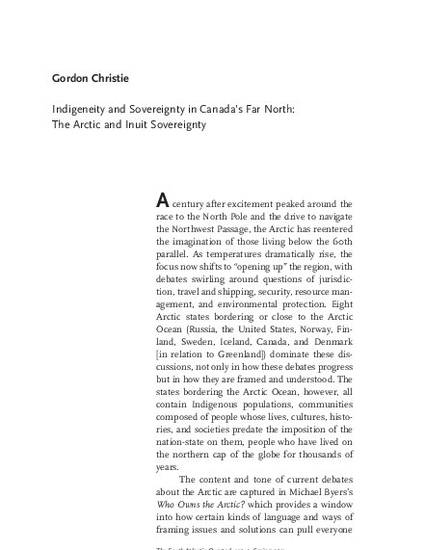
- Canada; Arctic; Inuit; Colonization; Sovereignty; Indigenous peoples
As the Arctic “opens up” to exploration and economic development, a new stage in colonization looms. This essay builds toward a vision of Arctic nation-states meeting with the Inuit to work out how they might together come to an understanding of how decisions about the future of the Arctic may be appropriately made. The Inuit are currently actively resisting the new wave of colonization within a framework built on the bedrock of nation-state sovereignty. The notion of “sovereignty” serves as a keystone in a system of controlling narratives, functioning to generate and police ways of thinking about decision-making processes, a notion deriving much of its power from its being interwoven with notions of legitimacy and “right.” This concept functions at a deep level, not only upholding decision-making processes but going into the very structuring of meaning, thereby defining ranges of possible thought and action. The central thesis in this work is that the Inuit, occupying a vantage point defined by their Indigeneity (marked by the power they possess to build and maintain their own worlds of meaning through and about themselves, and their relationship to the world around), can advance a second form of resistance, challenging the new wave of colonization by placing their “stories” directly against those built around nation-state sovereignty.
